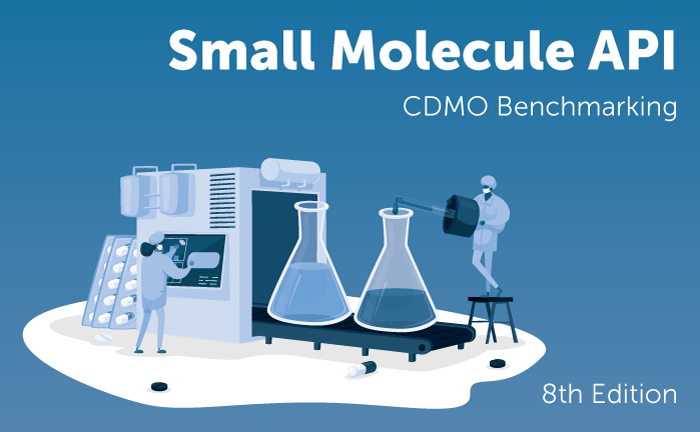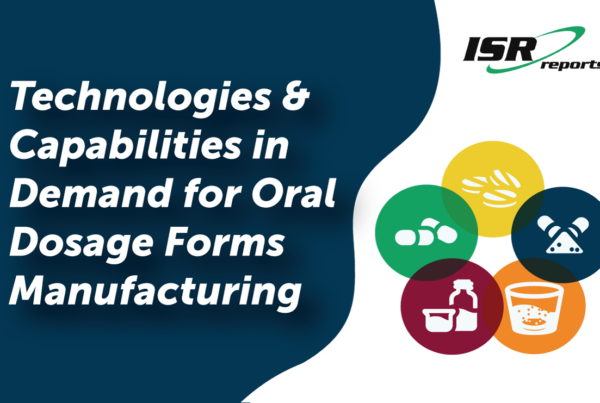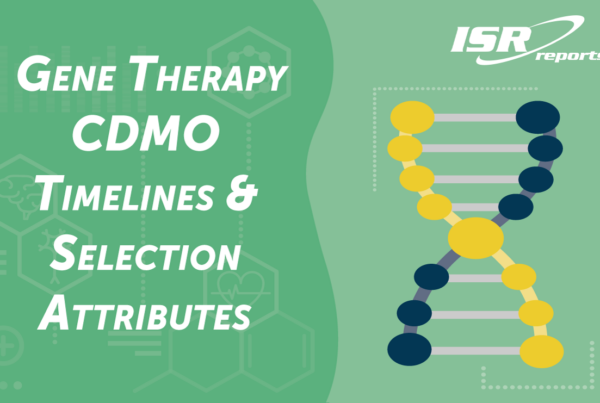Industry Standard Research’s CDMO Benchmarking reports include loyalty scores for each of the service providers included in the research. ISR computes loyalty as an index that consists of overall satisfaction, willingness to recommend, and likelihood to use again. The loyalty measurement serves as another element to support strategic decision-making in CDMO selection and to provide CDMOs greater insight into competitive positioning among contract manufacturers. To gain a better understanding of what makes a sponsor loyal to their CDMO, we examined the relationship between the scores the CDMOs received on 22 performance metrics (the same performance metrics used to identify the CDMO Leadership Award winners) and the CDMOs’ loyalty scores using a regression analysis.
Our goal was to identify which CDMO traits work as “loyalty predictors” because of their statistically significant correlation with loyalty scores. By quantifying these relationships, CDMOs can focus their efforts and resources on improving performance in areas that lead to repeat business. Sponsors also can better understand what makes their outsourcing peers loyal to any particular contract manufacturer. For this exercise, we focused on 12 (of the 34) small molecule drug substance CDMOs, each of which received 10 or more user ratings to ensure small sample sizes didn’t skew the results. The performance metrics are grouped into five categories: Delivery Factors, Organization Factors, Capabilities, Staff Characteristics, and Service Capabilities.
Small Molecule API CDMO Customer Loyalty
Interestingly, none of the four metrics in the Service Capabilities category predict small molecule drug substance sponsor loyalty (i.e., no statistically significant correlations). Meaning, sponsors and CDMOs alike would not benefit from concentrating on how well a contract manufacturer is rated on its process development, analytical services, drug substance manufacturing, or regulatory support capabilities. Instead, the data show two of the top six performance metrics with the strongest relationships to customer loyalty are among the Organization Factors — or the contract manufacturer’s company characteristics. In fact, the most significant relationship our regression analysis identified is between loyalty and the CDMO’s industry reputation or being well regarded within the industry. The second Organization Factor — complementary core competencies — had the third highest explanatory power for customer loyalty among variables significantly related to loyalty.
Two Staff Characteristics are among these six statistically significant loyalty predictors — experience level of staff, with 60% explanatory power, and offers innovative solutions, with a moderate correlation to loyalty. From the Capabilities category, a contract manufacturer’s ability to smoothly scale up and transfer technology has a positive relationship (or correlation) with customer loyalty. Among Delivery Factors and a frequently cited “most important selection metric,” reliable, on-time delivery is positively correlated with loyalty, another statistically significant predictor among the 22 performance metrics.
It’s important to note that regression analysis is not a magic bullet, and focusing on these traits as an outsourcer or a CDMO will not guarantee successful (or loyal) relationships. Importantly, correlation does not imply causation, and regression analysis does not infer causal relationships but can relay important information on correlating factors resulting in the outcome (i.e., loyalty). Thus, it is essential to combine findings from a regression analysis with other research methods and consider the broader business context.
KATE HAMMEKE is Vice President of Market Research at Industry Standard Research.
Primary market research data in this article were powered by the ISR Health Panel. Want to contribute to thought leadership pieces and help to make the pharma industry better? Join today.




